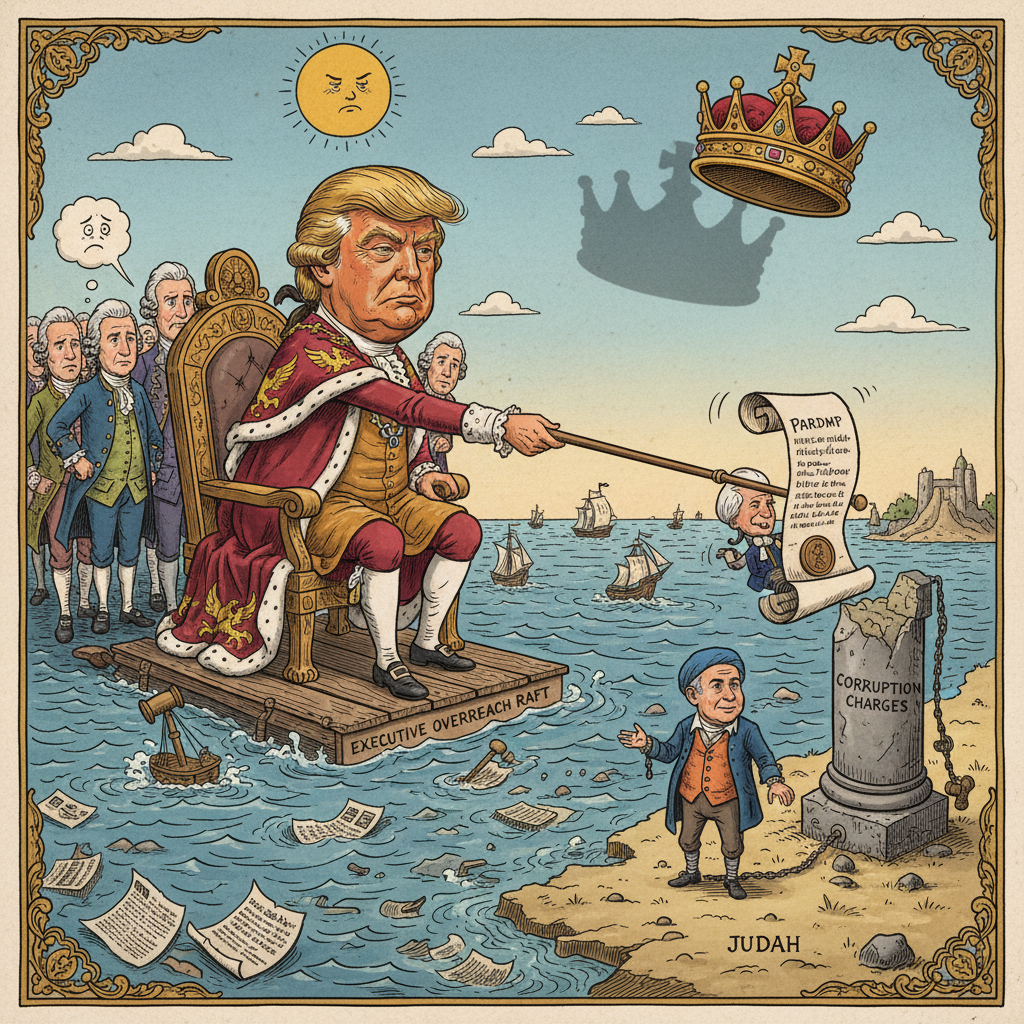President Donald J. Trump has formally intervened in Israel's judicial system, urging a pardon for Prime Minister Benjamin Netanyahu amid corruption charges, raising profound questions about sovereignty and the rule of law.
Details:
- President Trump dispatched an official communication to Israeli President Isaac Herzog, urging a pardon for Prime Minister Benjamin Netanyahu amidst his ongoing corruption trial.
- Trump characterized the charges as "political lawfare," a sentiment echoing colonial complaints against arbitrary royal decrees interfering with local legal processes.
- The Israeli President's office noted that established legal procedures require a defendant's direct request and acknowledgment of wrongdoing for a pardon, conditions Trump's unilateral demand bypasses.
- Advisers revealed Trump believes Netanyahu's experience mirrors his own indictments, suggesting a personal identification driving executive intervention across sovereign borders.
Why it Matters:
The executive branch, once conceived as a check on legislative excess, now increasingly asserts a prerogative to dictate judicial outcomes, even beyond its own borders. Such actions, blurring the lines between executive authority and judicial independence, recall historical periods where the monarch's will superseded established legal frameworks. As John Dickinson once cautioned his countrymen, "Beloved Countrymen," the erosion of legal processes, however expedient, invariably undermines the very foundations of liberty. The precedent set by such interventions extends far beyond a single political trial. It invites a reciprocal disregard for judicial sovereignty, potentially normalizing a transactional approach to international justice where personal alliances trump constitutional safeguards and due process. This trajectory risks transforming the global legal landscape into a series of contested claims of executive influence, rather than a shared commitment to the impartial application of law.
